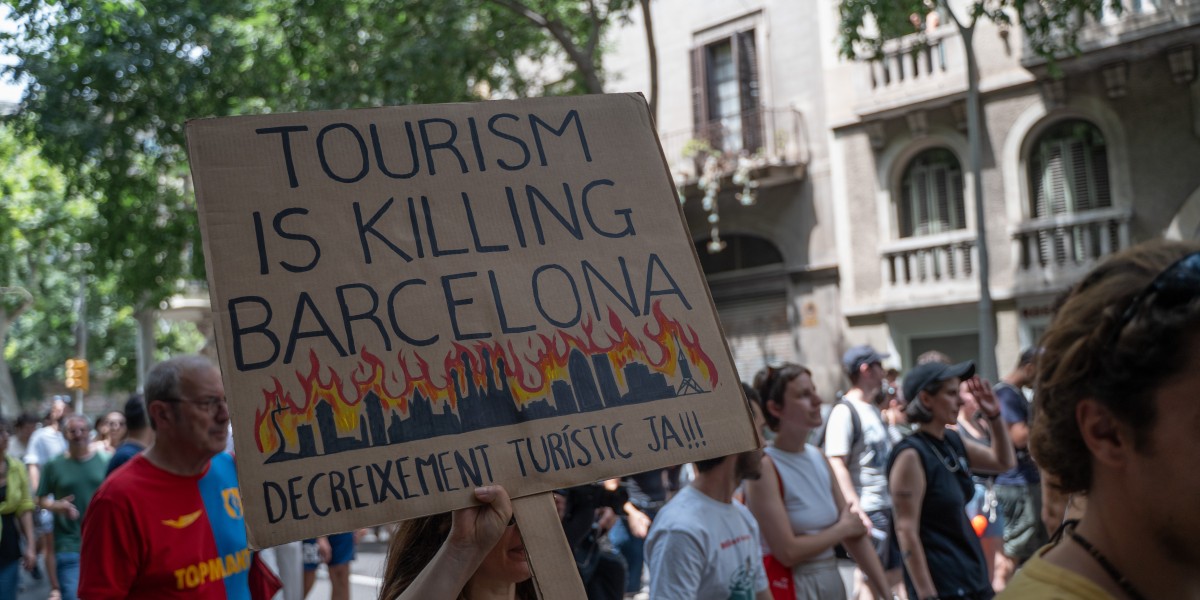
Barcelona marked World Tourism Day on Saturday with protests at several landmark sites, drawing fresh attention to visitor pressure and housing concerns.
What happened during the World Tourism Day protests in Barcelona
On Saturday, 27th September, anti-tourism activists staged a protest at Parc Güell in Barcelona. Water pistols were used to spray tourists, there were chants of “tourists go home,” and the protestors displayed signs and a large banner saying “mass tourism kills the city”. The action reflected rising concerns among residents about overtourism and its impacts on housing and city life

Why protesters target tourism in Barcelona
Organisers say mass visitor numbers are overwhelming public spaces and services, while fuelling a surge in everyday costs and rents that price out residents. Spain received a record-breaking 17 million visitors in the first quarter of 2025, and campaigners argue that this is unsustainable for neighbourhood life, especially in parts of Barcelona.
Housing has become the flashpoint. Activists point to the growth of tourist apartments and short-term lets, arguing that they displace long-term housing. In response, Barcelona plans to revoke licences for roughly 10,000 registered short-stay apartments by 2028. While in Malaga, the city council has confirmed that it will suspend new licences for tourist accommodation for the next three years. Furthermore, several Spanish regions — and some municipalities — levy a tourist tax, with others planning or debating one, to manage visitor impact and fund local services and sustainable tourism.

Public sentiment and the ‘tourists go home’ debate
Slogans such as “tourists go home” have become a shorthand for anger over saturation and its knock-on effects on housing and local services, reflecting a wider Spanish debate about the limits of mass tourism.
However, the anger voiced in recent protests is aimed less at tourism itself than at mass tourism and its pressure on housing, public space and services. National and local authorities have signalled a shift toward “quality” and more sustainable models — encouraging longer stays, spreading visitor flows beyond saturated hotspots, and tightening controls on irregular accommodation.
